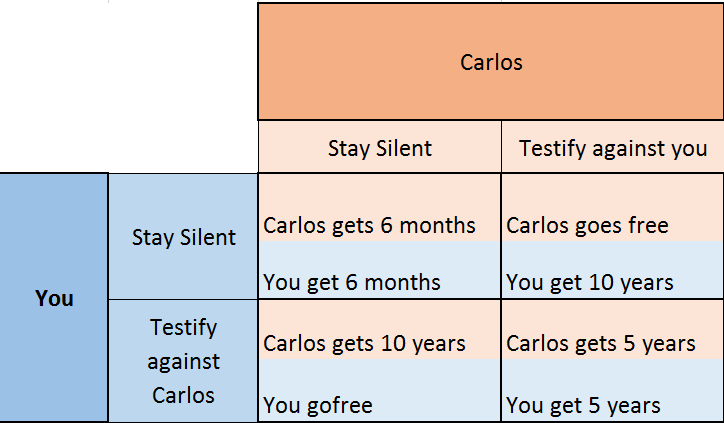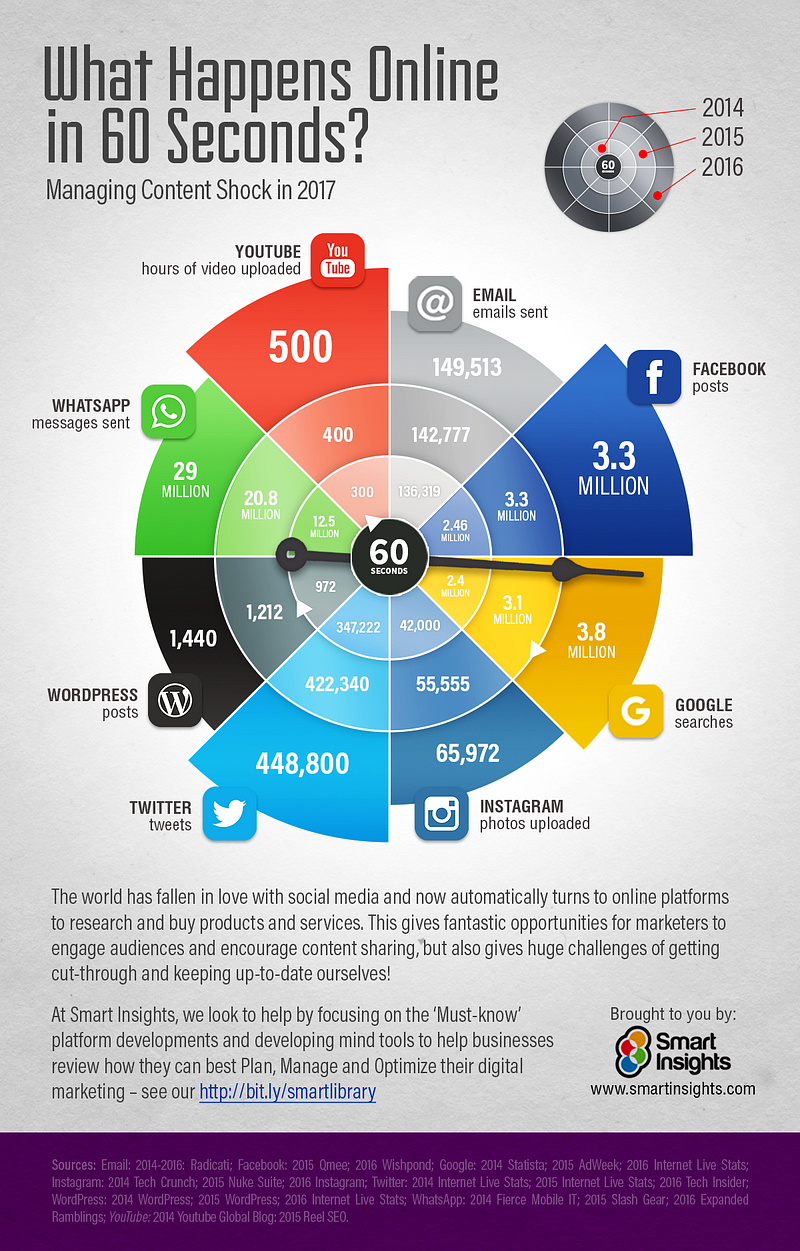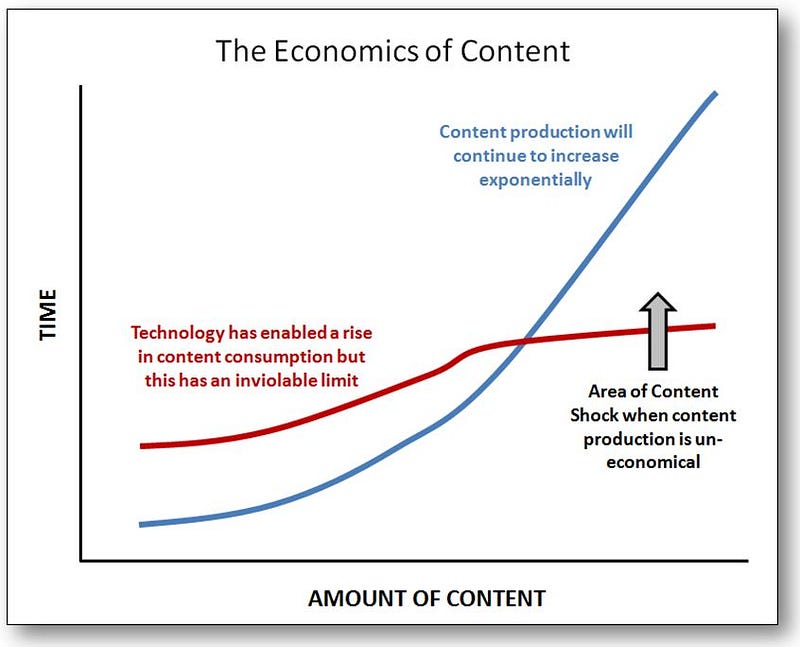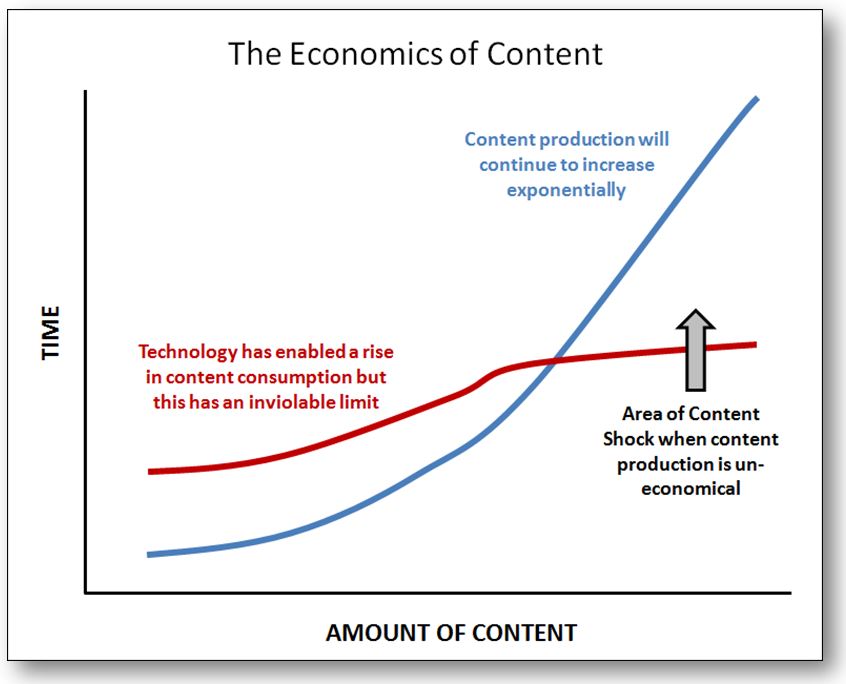
How the content inflation caused by online marketing is hurting its future, and what we might do about it.
Last year, I signed up for the email list of a pretty famous writer/podcaster/internet personality. I liked the few articles that I read, and felt that I’d like to get some emails from him — pointing me to other useful information or just to keep updated on what he wrote.
Within 24 hours of signing up, I received 6 emails (not counting the opt-in/confirmation emails). Over the next week, I received an average of 3–4 emails per day from him (well, not him, more like his content management/automation system). They were dense with content. I saw no light at the end of the tunnel. I had to unsubscribe. I’ve now become very circumspect about what I sign up for.
That got me to thinking: have those of us in the “content” game (I hate that term, by the way) reached the point where our continued efforts to grow our audiences are now actually hurting all of us? I suspect the answer is “yes”.
My Leaning Out
I’ve recently started receiving fewer emails, by design. I’ve unsubscribed from all but a few newsletters and e-mail updates that I consider high-value. I’ve also eliminated a lot of the reading from RSS feeds that I do, unless I see the person or website as one that I consistently gain some value or enjoyment from.
At the same time, I’ve also recently gotten more involved in marketing. I have my own newsletter (Woolgathering) — which I spend a decent amount of time crafting each week. I write for publications on Medium, and like to make sure that people see the stuff I spend my time and attention writing.
But I get the sense that when it comes to content on the internet, and the marketing of it, we as content creators and marketers are caught in a form of the prisoner’s dilemma. This basically means that we will need to rely on trust in each other and the mechanisms of internet content to all reap the benefits of profiting from the attention of others.
The Dilemma Explained
The Prisoner’s Dilemma is a thought experiment that comes from Game Theory, and it helps to illustrate a tragic aspect of human reasoning. I taught Philosophy at the college level for about 5 years, and have always struggled to succinctly explain it to students, but here’s my best attempt.
Imagine two thieves — you and Carlos — are apprehended by the police and separated for individual interrogation. You each have two options: stay silent, or testify against your accomplice. If you both stay silent, you will both only get 6 months in jail. If one of you testifies and the other stays silent, the one who testifies goes free, and the one who stays silent gets 10 years in jail. If you both choose to testify against each other, you both get 5 years in jail.

As you can see, it would be best for you and Carlos to stay silent. Sure, you both get 6 months in jail, but you also avoid getting 5 years. But the problem is that you both fear that by staying silent, the other person will take advantage of the choice and testify against the other. So because you fear that, you both try to get the upper hand, and you both get 5 years. That’s far from a good outcome. For you, it’s the second worst outcome you could have gotten.
The Prisoner’s Dilemma is an illustration of a simple principle that plays out in certain instances where competition and cooperation are both options:
When we pursue the highest possible reward — which depends on some competitor getting the shaft — we end up making things worse for everyone. I see this happening with content now. The more we all feverishly push out content, to out-scream everyone else on the trading floor, the less people really hear anything. We yell louder and more often, people listen less and less. And so on ad infinitum.
How the Dilemma Applies to Online Content — In Two Interesting Data Sets
Compare the following 3 reports, from the Radicati Group, on how many emails are sent and received each day:

2014 email data & projections in billions, care of the Radicati group

2016 email data & projections in billions, care of the Radicati group
- and finally, one from this year

2017 email data & projections in billions, care of the Radicati group
Aside from just how staggering these numbers are, did you notice just how drastically the estimates went up from 2014 to 2017?
In 2014, the amount of emails sent per day by 2018 was estimated to be 227.7 billion. In 2016, that number was revised to 235.6 billion. That’s a 3.5% increase in the forecasted emails in a 2 year period — which would be notable in and of itself. But that rate is actually increasing. The 2017 edition of the study shows the projection for 2018 to be 281.1 billion emails. That’s an increase of over 23%, or 54 billion emails!
That’s just emails, but what about social media content in general? They say a picture is worth a thousand words, so here’s a quick thousand words about online content in general:

The sheer number of posts, emails, tweets, images, and hours of video posted every 60 seconds is more than we could possibly give full attention to.
Consider this:
- the average blog post is about 750 words, which is about 4 minutes of reading time. If WordPress accounts for about 25% of text content on the internet (a generous estimate, I think) — that’s about 6,000 blog posts on the internet each minute. Which means there is 24,000 minutes worth of reading material published each minute online.
- the average email is about 500 words, which is about 2 minutes of reading time, and there are 150,000 of them sent every minute! That’s about 300,000 minutes of emails sent every minute.
- 1 hour of video takes 1 hour to watch (or if skimmed, maybe 20 minutes?). And there are 50 of those hours uploaded per minute!
In short, we’re generating exponentially more content each minute than we could consume in one day. And it is getting easier to create content more quickly, but no easier to consume it more quickly. The space between what we create and what we can consume is what accounts for what many call content shock.


The Nut of the Dilemma for Content Creators
I sit in marketing meetings with regularity. I also read a decent amount about marketing and content strategy (it’s pretty hard to avoid it, actually). The overwhelming majority opinion is that the more content, the better. More emails, more videos, more Facebook posts, more tweets, more instagram pictures, and so on.
But the more that all of us send emails, the more likely prospects are to go numb to what each company and person is trying to say. Noise becomes so loud that it drowns out more and more of the signal. But we keep making it easier to create more content more quickly. Because each of us have the primary interest of having our message heard, and we continue to see our peers churning out and ramping up content, we do the same. We fear that if we slow down, we’ll be on the wrong side of the prisoner’s dilemma. They’ll go free, and we’ll be in chains.
Like the prisoner’s dilemma, by all of us following our primary interest, we’re actually all doing worse for ourselves. But if we’d forego the possibility of huge gains, we’d make a better environment for all of us to get some attention, and thus better results. If we slowed the pace of content, and made it slower, more substantial, and more meaningful, there would be more time for consumers of it to consume it in a meaningful way. The numbness wouldn’t be so pervasive. Content overwhelm would be far less intense.
So What Can Be Done?
If we all agree to scale back how much of people’s attention we’re working to get (i.e., how much content we’re pushing, and how often we’re pushing it), we could stand to gain more of our target audience’s quality time and attention. Pie in the sky idea? Probably. Hard sell to marketing people? Most definitely. But the Prisoner’s Dilemma shows us that if indeed content shock is a real thing, it’s in our best interest to scale back. But there are two major problems.
First of all, we fear that by scaling back, we’ll be staying silent while everyone else is testifying against us. They’ll reap all the benefits, and we’ll be left in jail. It’s a real fear, and it’s the biggest hurdle to scaling things back. So long as this fear dominates, content will proliferate.
The second problem is that we have to be honest with ourselves about who our target audience is — and many are not. So, they blast out all sorts of emails, regurgitate content, and buy leads — all to try to just get as many subscribers and viewers as possible — even if they barely pay attention to you.
I’m not sure how to overcome either of these. I just write stuff on the internet. So maybe I’m part of the problem, right? Perhaps. But perhaps this particular piece of content can spark a realization in some of those who are tempted to push another few pieces out — just for the sake of pushing more out. Maybe don’t do that. Maybe just hone a draft, so it’s a bit more substantial. Maybe just take time to think about things. Maybe just have some quiet time. Really, it’s up to you. But for me, I’d like to spend some time thinking about an internet that is a little less like a loud, crowded city street, and more like a cozy corner of a library.
A guy can dream, right?